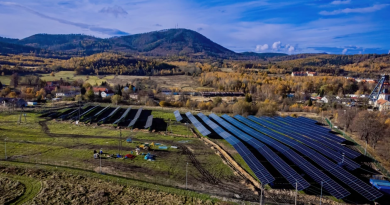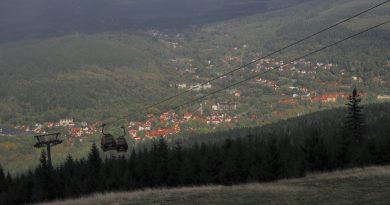A Better Climate on the Periphery of Lower Silesia Thanks to Watchdogs. It’s Worth Acting for Better Transport and Adaptation
The Bender Society is conducting the project “Climate Watchdog for Peripheries.” The initiative is financially supported by the PROTEUS program, conducted by the Transatlantic Foundation, the European arm of the German Marshall Fund of the United States.


The project is co-financed by the European Union. However, the views and opinions expressed are solely those of the authors and do not necessarily reflect those of the EU or the European Education and Culture Executive Agency. Neither the EU nor the granting body can be held responsible for them.
Eight Lower Silesian municipalities with populations under 20,000 were selected to examine climate issues: Jedlina-Zdrój, Kamieniec Ząbkowicki, Karpacz, Malczyce, Mirsk, Szklarska Poręba, Świeradów-Zdrój, and Walim. The flood-affected town of Lądek-Zdrój was also included in the project.
Based on extensive project activities—including document and data analysis, study visits, expert interviews, and a resident survey—activists created a report with recommendations and proposals for developing local climate strategies.
What Was Achieved?
The aim of the project was to enhance climate protection efforts in the peripheral areas of Lower Silesia. Through surveys, field visits, and analysis conducted in nine municipalities, climate recommendations were developed and accompanied by a public awareness campaign conducted on the independent platform Hipermiasto.
As a result, the climate situation in each of the nine municipalities was assessed, and a citizen-consulted action plan was created, which will be implemented in Świeradów-Zdrój, for example. The project also contributed to increasing public awareness about climate change and public transportation.
Reports for the following municipalities are available for public access: Jedlina-Zdrój, Kamieniec Ząbkowicki, Karpacz, Malczyce, Mirsk, Szklarska Poręba, Świeradów-Zdrój, and Walim.
Among the most lasting effects are well-received proposals that will form the basis for further actions by local governments and national institutions. These include proposals related to Świeradów-Zdrój and environmental decisions (see below), a draft climate strategy for Kamieniec Ząbkowicki (the municipality has committed to developing a strategy focused on climate and bicycle transport); a proposal for a climate action plan for Szklarska Poręba (the municipality has announced work in this area); a recommendation to ensure public access to documentation on heritage conservation (the Ministry of Culture plans to include this in a new monument protection law); a proposal to reduce VAT on public transportation (currently being analyzed by the Ministry of Finance); and a proposal to broaden the objectives of rural women’s associations to include environmental goals (currently being worked on by the Ministry of Agriculture and Rural Development).
See also: Climate Watchdogs on the Periphery Explain: Why Do We Need Climate Strategies?
Success Story: Świeradów-Zdrój
A particularly successful initiative took place in Świeradów-Zdrój. Watchdog activities were carried out in this small spa town located in the Izera Mountains, which faces challenges such as air pollution (smog) and excessive urban development that threatens the local environment. Activists made two research visits to the area, during which they explored the spa infrastructure, the vicinity of the mountain cable car, and the train station. They also established cooperation with the local Flins Association, which supports sustainable development of the resort.
Bartosz Kijowski, president of the Flins Association: „The town has seen extremely intensive development in recent years. Spatial planning documents often fail to reflect reality, allowing the construction of massive apartment buildings on narrow roads. This has led to spatial chaos and a decline in residents’ quality of life.”
The project involved the analysis of documents and data, expert consultations, a resident survey, and comprehensive study visits. Based on these activities, a detailed report with recommendations was created and a proposal was submitted to local authorities, including both officials and council members.
Activists called for the development of a local climate strategy and a plan to protect nature from the negative impacts of overdevelopment. Such a plan could include efforts to reduce fossil fuel consumption, promote renewable energy, and improve energy efficiency. Priority actions identified included the thermal retrofitting of buildings, support for renewable energy sources, the construction of bike paths, and the promotion of pedestrian traffic.
Jeremi Jarosz from the Bender Society explains: „The development of public transportation is particularly important, as it constitutes a fundamental public service. This is especially relevant for the Świeradów-Zdrój railway station and the long-anticipated reestablishment of rail connections with Szklarska Poręba.”
Activists also emphasized the importance of adapting to climate change, which includes improving water retention, protecting infrastructure from extreme weather events, preserving biodiversity, and expanding green and blue urban infrastructure.
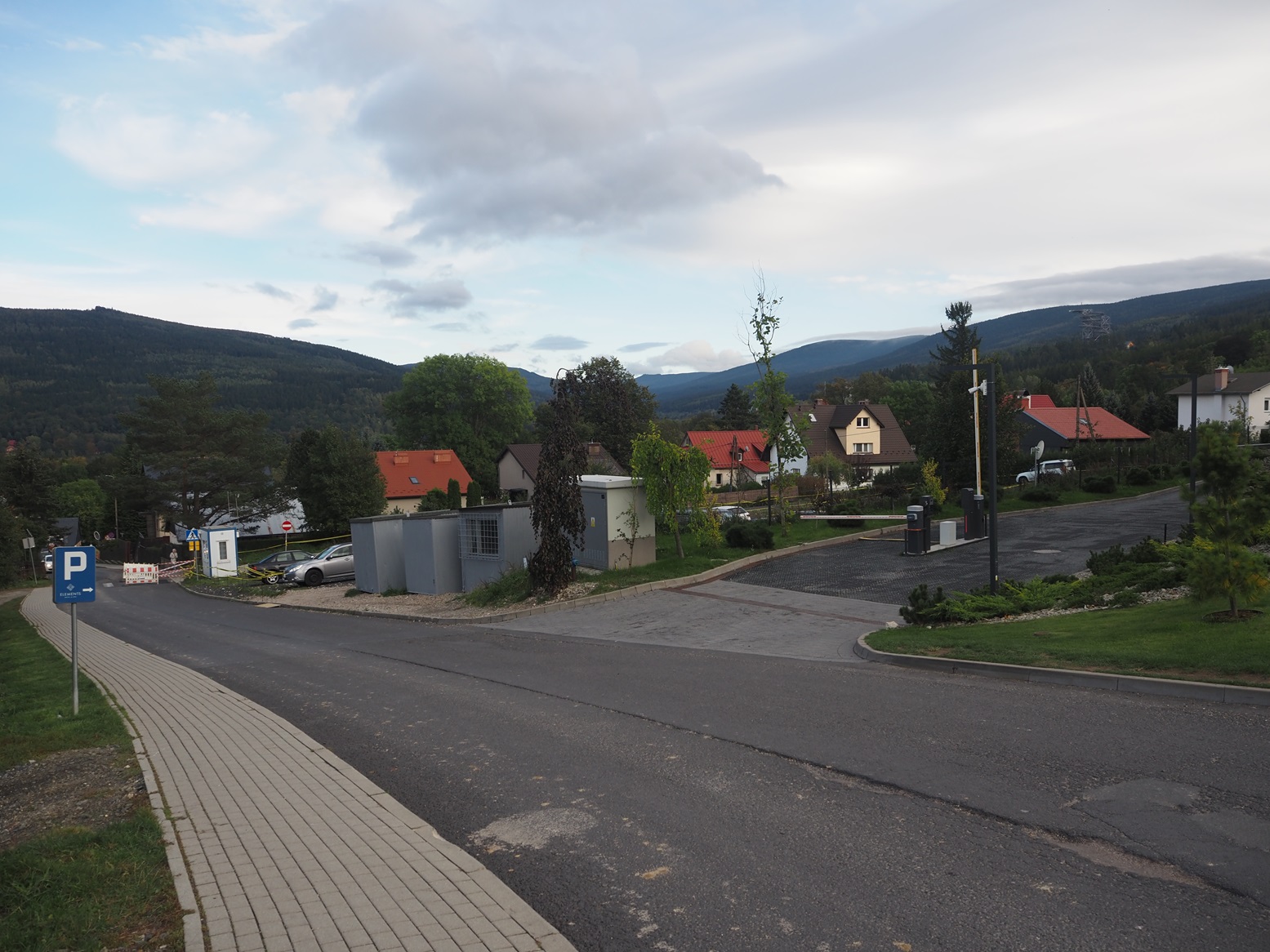
The Świeradów-Zdrój municipal office responded positively to the submitted proposal and announced its intention to develop a Municipal Environmental Protection Program, which will serve as a foundational document for local ecological policy.
Mayor Edyta Wilczacka said: „The program will include many of the points raised in the proposal, including the need to reduce urban development pressure on environmentally valuable areas and other topics related to climate protection.”
The proposal and its justification will be forwarded to the team responsible for drafting the Environmental Protection Program, where it will undergo a detailed analysis, and selected elements will be included in the document. Activists also declared their willingness to participate in further work on the program.
Success Story: Environmental Decisions
Another significant success involved changes to environmental decision-making processes. In collaboration with the Society for Modern Legal Education (Stowarzyszenie Nowoczesnej Edukacji Prawnej, SNEP), participants analyzed Polish climate-related legislation and identified areas where legislative changes would support pro-climate and watchdog initiatives. As a result, they prepared legislative proposals, including a petition to the Senate aimed at amending regulations governing environmental decisions.
Currently, such decisions (often referred to as environmental decisions) are removed from the Public Information Bulletin after 14 days, making them accessible only upon formal request thereafter.
Jeremi Jarosz from the Bender Society emphasizes: „This process generates additional work for public officials—first to publish, then to remove, and finally to respond to access requests. A far more effective solution would be to make the information available indefinitely, which would reduce administrative burden and lower public costs.
Activists stressed that transparency is key to enabling civic oversight and community engagement in environmental protection. They also raised serious concerns about the compatibility of current regulations with European Union law.
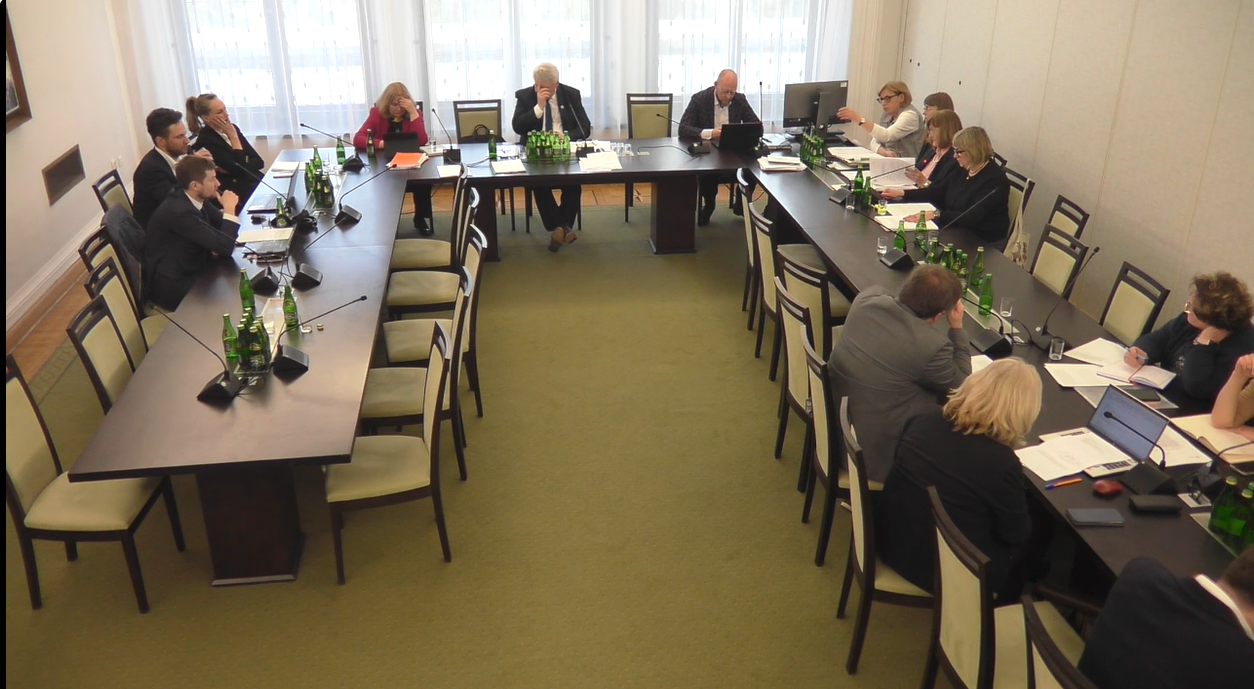
The Senate examined the petition during a session of the Petitions Committee held on March 11, 2025. The petition was presented by Marzena Krysiak, a senior specialist in the Petitions and Correspondence Division of the Senate’s Bureau of Analysis and Petitions.
The result was positive: a government representative supported the petition.
Anna Ronikier, Deputy Director General for Environmental Protection on behalf of the Ministry of Climate and Environment, stated: „Ministry fully supports the petition’s recommendations and is working on their implementation. There are plans to digitalize environmental proceedings and to create a nationwide online platform for handling all applications for environmental decisions.”
See also: Train Returns to Karpacz in a Month. Climate Watchdogs: Just the Beginning of Sustainable Mobility
Who Was Involved in the Watchdog Activities?
Several non-governmental organizations were involved in watchdog activities throughout the project. These included the Association for Modern Legal Education (which prepared reports and legal analyses), the local Flins Association from Świeradów-Zdrój (which helped raise local awareness), the Eco-Development Foundation (which provided advice on urban greenery and tree management), and the Akcja Miasto Association (which submitted some proposals and helped define the project’s thematic scope).
Numerous individual activists were also involved, including Krzysztof Smolnicki (ecologist and leader of the Lower Silesian Smog Alert), Paweł Pomian from Eco-Union, tree specialist Sabina Lubaczewska, Cezary Grochowski (head of the Wrocław Cycling Initiative), and Joanna Szczygielska-Źółtańska from Parents for Climate.
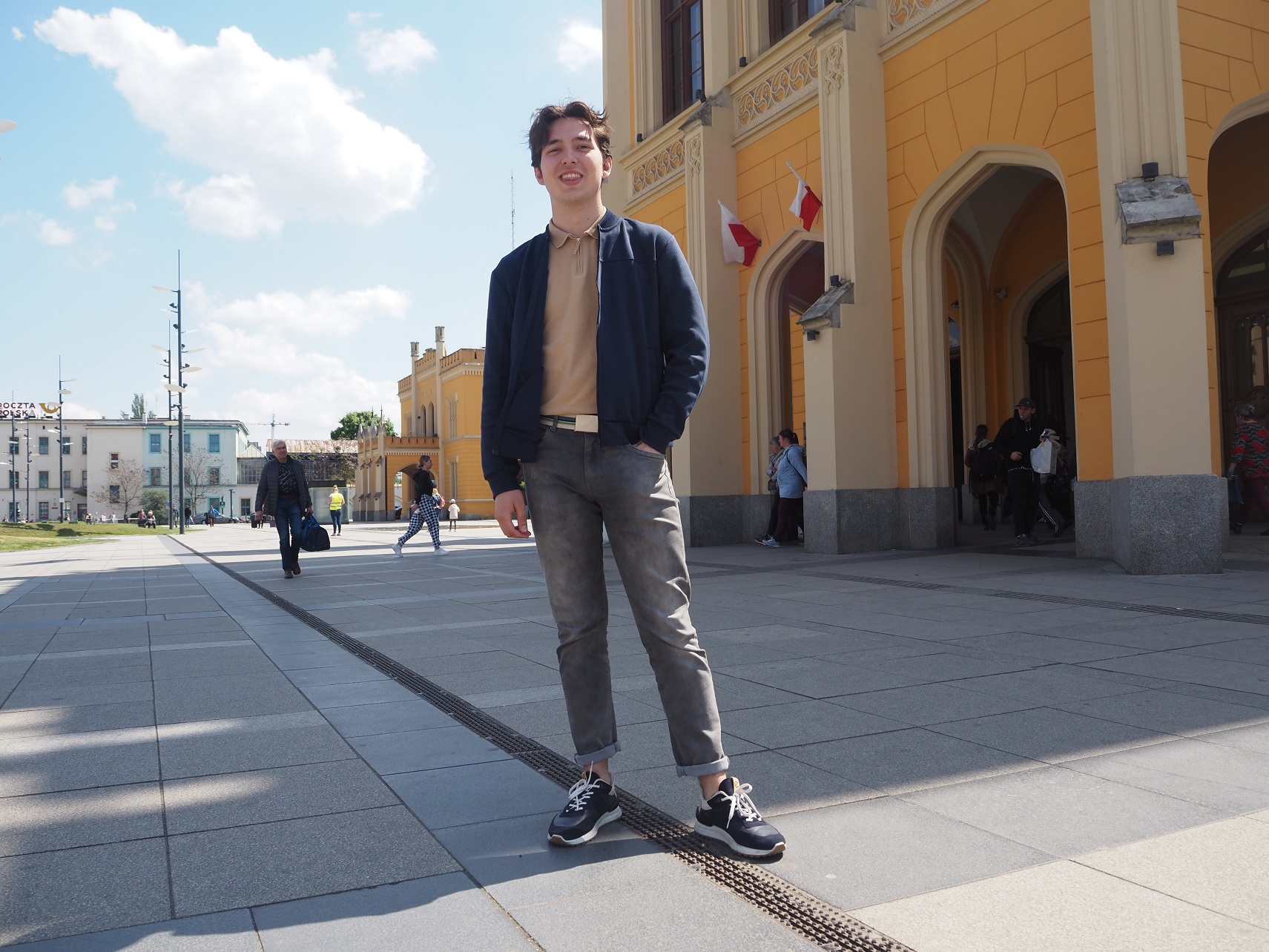
Representatives of local government also participated in discussions, including Joanna Klima, chairwoman of the Szczepin District Council, and Jakub Janas, a Wrocław city councilor.
We also collaborated with mayors, officials, and councilors from the mentioned 9 municipalities, who were the recipients of the proposals and were responsible for drafting responses to them.
Sustainability of Climate and Transport Watchdog Actions
The climate and transport watchdog activities had lasting impacts. The cooperation between the involved non-governmental organizations was strengthened and will continue after the project ends. This is especially important given the growing importance of climate issues in public discourse. Further joint proposals, study visits, and grant applications are planned.
The independent platform Hipermiasto also gained strength as a trusted source of independent, grassroots knowledge concerning democratic and climate activism.
The project’s experiences will be transferred to other municipalities, where similar reports and resolutions will be developed. Monitoring of the nine original municipalities will continue, and updates will be regularly published on the Hipermiasto platform. Local case studies will also be used in public policy debates and promoted via social media.
The campaign to promote the legal and policy proposals developed during the project will also continue. These proposals will be submitted through official consultation and legislative procedures, as has been done so far. Activists will also present them during meetings with regional and national decision-makers.
See also: Climate Watchdogs Score a Win on the Periphery! Świeradów-Zdrój to Develop Environmental Plan
Why Is It Worth Acting on the Periphery?
The project showed that small, peripheral municipalities in Lower Silesia are receptive to climate-related proposals. It is worth reaching out and offering concrete plans for change in such areas. The initiative also demonstrated the importance of expanding efforts to include additional municipalities and of adapting activities to new challenges, such as incorporating climate considerations into the rebuilding of Lądek-Zdrój after the recent flood.
The project confirmed that public transportation is a key element of climate policy and that combating transport exclusion can significantly reduce emissions.
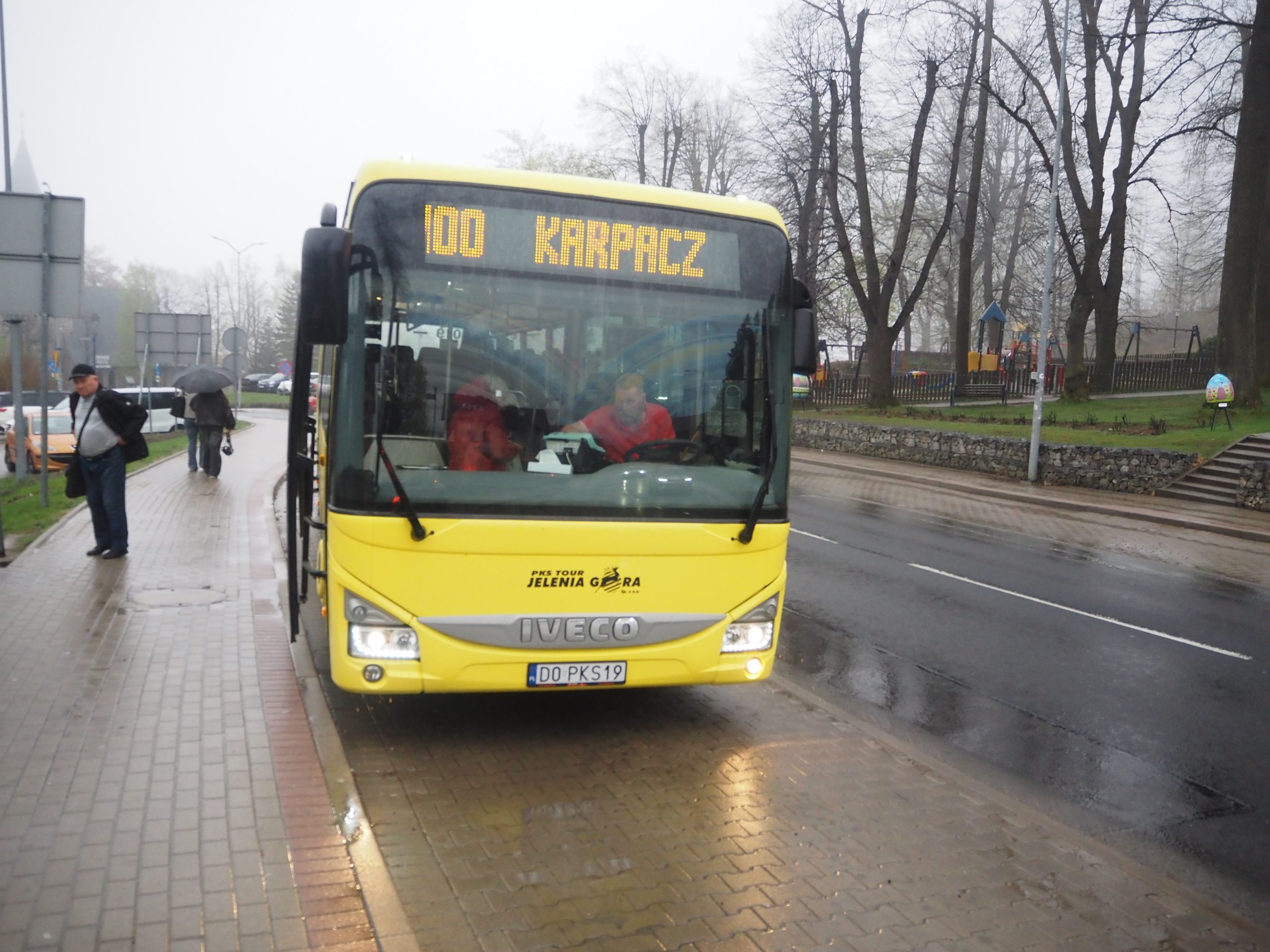
It also revealed that legal frameworks governing activism, NGO operations, civic participation, climate protection, and public transport still require major reforms. However, engaging in public consultations and legislative advocacy allows such proposals to be heard and included in governmental plans.
Support for watchdogs operating outside major urban centers should be expanded through dedicated grant programs, especially since many municipalities lack active civic oversight organizations.
What Risks Did Watchdogs Face on the Periphery?
Regarding risks encountered by peripheral watchdogs, the risk analysis conducted at the project’s start proved accurate. Cooperation from other NGOs was abundant, with Lower Silesian organizations contributing by reviewing planning documents, sharing expertise, and evaluating ideas.
Concerns that municipal authorities would ignore access-to-information requests were mostly unfounded, though three municipalities have not yet responded. Activists plan to follow up and file formal complaints with supervisory authorities if necessary.
No issues arose when organizing live debates or scheduling discussions for participants. A new and unforeseen risk was the Lower Silesian flood, which altered the nature of the visit to Walim (where activists focused on observing flood impacts instead of climate-related matters) and delayed the campaign’s promotion by about two weeks. The flood also resulted in the inclusion of Lądek-Zdrój as the project’s ninth municipality.



